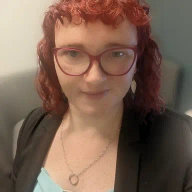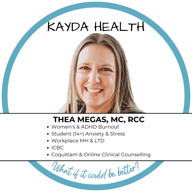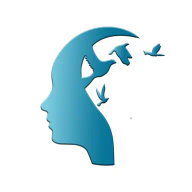ADHD Therapists in Chilliwack, BC



















How do I find a therapist in Chilliwack, BC?
Finding a therapist in Chilliwack, BC is easy with Theralist. Browse our verified directory of licensed therapists, filter by speciality, insurance acceptance, availability, and treatment approach. All therapists in Chilliwack, BC are verified licensed professionals committed to providing quality mental health care. Once you find the right fit, contact them directly to book your first appointment.
How much does therapy cost in Chilliwack, BC?
Therapy costs in Chilliwack, BC typically range from $150-$250 per session for private practice. Many therapists accept extended health insurance, which can significantly reduce or eliminate out-of-pocket costs. Some practitioners offer sliding scale fees based on income. Check individual therapist profiles to see their rates, insurance acceptance, and payment options specific to Chilliwack, BC.
Are therapists in Chilliwack, BC accepting new clients?
Yes! Many therapists in Chilliwack, BC are currently accepting new clients. Our directory clearly indicates which therapists have availability and whether they offer in-person or virtual sessions. You can view each therapist's profile to learn about their current client availability and contact them directly to discuss appointment options in Chilliwack, BC.
What types of therapy are available in Chilliwack, BC?
Therapists in Chilliwack, BC offer various evidence-based approaches including Cognitive Behavioural Therapy (CBT), EMDR, Dialectical Behaviour Therapy (DBT), psychodynamic therapy, mindfulness-based therapy, family therapy, and couples counselling. Filter by specific therapeutic modalities to find the approach that best matches your needs in Chilliwack, BC.
Do therapists in Chilliwack, BC offer online/virtual sessions?
Yes, the majority of therapists in Chilliwack, BC offer secure video therapy sessions across Canada. Virtual therapy provides the same quality of care as in-person sessions with added flexibility. On Theralist, you can filter for therapists offering online sessions, in-person appointments in Chilliwack, BC, or both options.
How do I know if a therapist in Chilliwack, BC accepts my insurance?
Each therapist profile on Theralist clearly lists accepted insurance providers. Review individual therapist profiles to see which therapists in Chilliwack, BC accept your coverage. Commonly accepted plans include Blue Cross, Manulife, Sun Life, Canada Life, Green Shield Canada, and Great-West Life. Contact therapists directly to confirm coverage details for your specific plan.
What should I look for when choosing a therapist in Chilliwack, BC?
Consider their areas of specialisation (such as anxiety, depression, trauma, or relationships), therapeutic approach, availability, fees, and insurance acceptance. Read therapist profiles to understand their experience and treatment philosophy. Most therapists in Chilliwack, BC offer a free initial consultation to help you assess whether they're the right fit.
Can I book a therapist appointment in Chilliwack, BC online?
Theralist helps you find and connect with therapists in Chilliwack, BC. Browse therapist profiles to review their specialisations, experience, and availability. Each profile includes contact information so you can reach out directly to the therapist to schedule your appointment. Many therapists offer online booking through their own websites or can be contacted by phone or email.
What qualifications do therapists in Chilliwack, BC have?
All therapists listed in Chilliwack, BC on Theralist are registered and licensed professionals. This includes Registered Psychologists, Registered Social Workers (RSW), Registered Psychotherapists (RP), and Canadian Certified Counsellors (CCC). Each profile displays their credentials, regulatory college registration, years of experience, and specialised training.
How quickly can I see a therapist in Chilliwack, BC?
Availability varies by therapist, but many in Chilliwack, BC have openings within 1-2 weeks. Some offer same-week or even same-day appointments. Review therapist profiles to learn about their current availability and contact them directly to find therapists in Chilliwack, BC with the shortest wait times. Virtual therapy options often have faster availability than in-person sessions.
Is therapy in Chilliwack, BC confidential?
Yes, absolutely. All therapists in Chilliwack, BC are bound by professional ethics and privacy legislation including provincial privacy acts and PIPEDA. Everything you discuss in therapy remains confidential except in rare circumstances involving safety risks. Therapists will explain confidentiality limits during your first session.
Do I need a referral to see a therapist in Chilliwack, BC?
No, you don't need a doctor's referral to see a therapist in Chilliwack, BC. You can book directly with any registered therapist, psychologist, or counsellor. However, some insurance plans may require a referral for coverage, so check your specific policy or contact the therapist's office for guidance.
How can I find affordable therapy in Chilliwack, BC?
Theralist makes finding affordable therapy in Chilliwack, BC easier with our sliding scale filter. Many therapists offer reduced fees based on income, with rates as low as $80-$120 per session. Use our sliding scale filter to instantly see therapists who offer income-based pricing. You can also look for therapists who offer EAP (Employee Assistance Programme) services or provide free initial consultations to find options that fit your budget.
What's the difference between a psychologist, psychotherapist, and counsellor in Chilliwack, BC?
In Chilliwack, BC, these professionals offer different types of mental health support. Psychologists hold doctoral degrees (PhD or PsyD) and can provide psychological testing and diagnosis. Psychotherapists are regulated in some provinces and use talk therapy to address mental health concerns. Counsellors (including Registered Social Workers and Canadian Certified Counsellors) provide counselling and therapeutic support. All mental health professionals listed on Theralist are verified and licensed. You can filter by credential type to find psychologists, psychotherapists, or counsellors in Chilliwack, BC based on your specific needs.